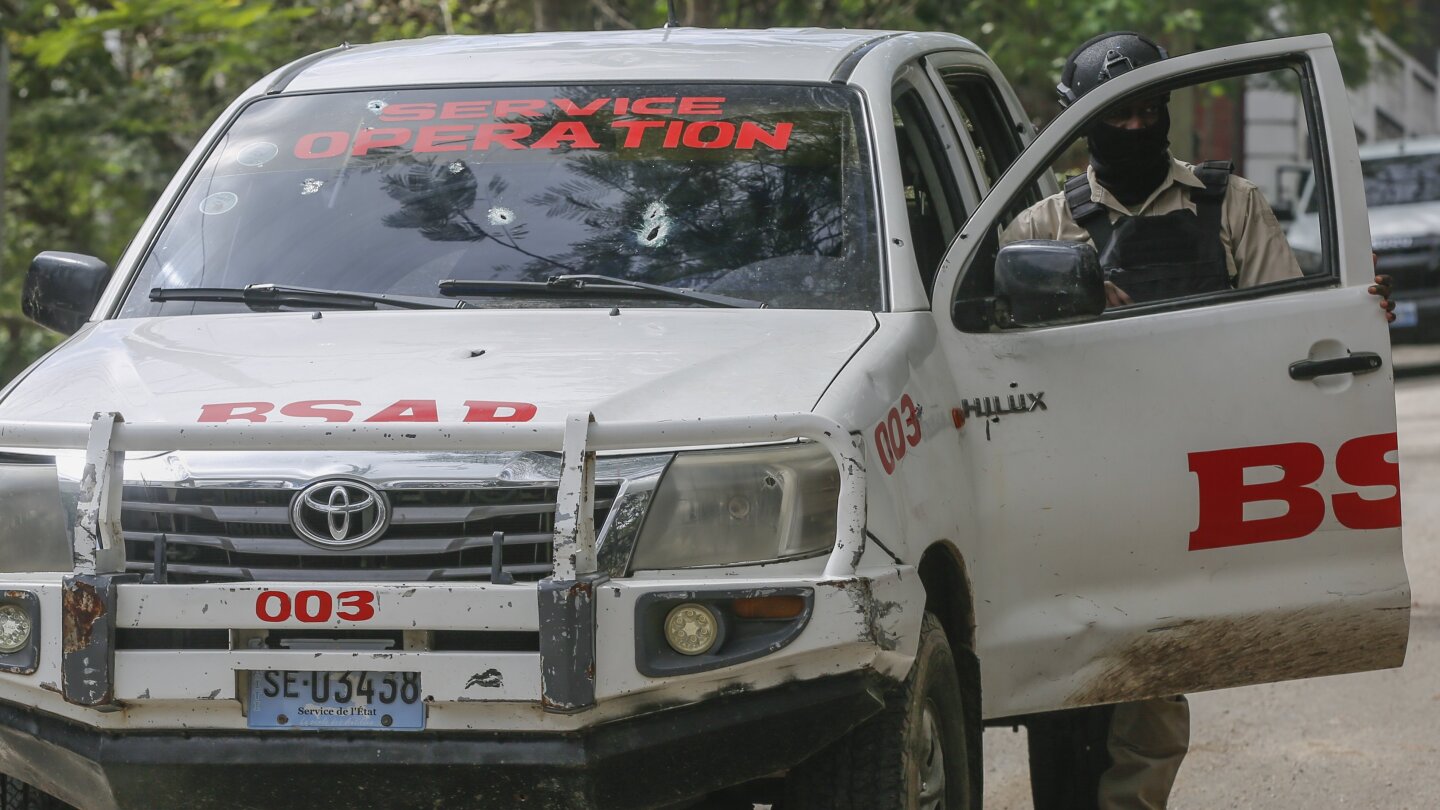PORT-AU-PRINCE, Haiti (AP) — Police killed five armed environmental protection agents in Haiti’s capital Wednesday during the third consecutive day of demonstrations that have paralyzed the country amid growing demands that Prime Minister Ariel Henry resign.
The deadly shooting between police and agents with Haiti’s Security Brigade for Protected Areas occurred in the Laboule community of Port-au-Prince, Lionel Lazarre, head of a police union known as Synapoha, told The Associated Press. Lazarre wasn’t at the scene but said he was briefed about the shooting by officers who were involved. He had said earlier that four were killed and later updated the number of victims to five.
He claimed that the environmental agents opened fire after police asked them to drop their weapons, prompting officers to shoot. The AP could not independently verify the claim, and the Security Brigade for Protected Areas could not be immediately reached for comment.
The environmental division has recently come under scrutiny after its agents in northern Haiti clashed with police.
A police official who declined to provide his name and said he wasn’t at the scene but was briefed by those involved confirmed the fatal shootings in a separate interview with the AP.
Garry Desrosiers, spokesman for Haiti’s National Police, did not return messages seeking comment.
Police were seen towing a pickup truck emblazoned with the environmental agency’s name and whose windshield was marked by several bullet holes.
Clashes were reported elsewhere in Port-au-Prince, with officials firing tear gas and live bullets to break up crowds of protesters.
Larger protests were organized on Tuesday, the same day that former rebel leader Guy Philippe, who played a key role in the 2004 ouster of former President Jean-Bertrand Aristide, made a surprise appearance in Port-au-Prince.
He pledged to be “out on the streets” on Wednesday, but he wasn’t reported seen anywhere.
Haitians have said they wanted the prime minister to step down by Feb. 7, the date Haitian leaders are typically sworn into office. The date also carries deep historical significance in Haiti: On that date in 1986, former dictator Jean-Claude Duvalier fled for France, and in 1991, Jean-Bertrand Aristide, Haiti’s first democratically-elected president, was sworn in.
____
Follow AP’s coverage of Latin America and the Caribbean at https://apnews.com/hub/latin-america

